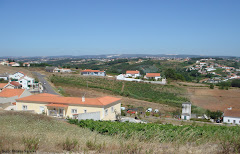A high-profile conference series, spanning 2012 through 2013, which covers the contemporary crisis and changes in urban systems.
 The global financial crisis has provoked re-analysis of the limits and social harms associated with our economic systems and its relationship to urban life. The move to conditions of an economic reverse, a crash of arguably unprecedented scale, has been met with wavering commitments to expand and draw-back from the public financing of both private and state institutions. Proposals in many western and other countries globally for massive public cuts raise the prospect of economic stagnation and indeed social pain generated by the withdrawal of state supports for the most marginal members of society. This context presents important challenges to critical social analysis.
The global financial crisis has provoked re-analysis of the limits and social harms associated with our economic systems and its relationship to urban life. The move to conditions of an economic reverse, a crash of arguably unprecedented scale, has been met with wavering commitments to expand and draw-back from the public financing of both private and state institutions. Proposals in many western and other countries globally for massive public cuts raise the prospect of economic stagnation and indeed social pain generated by the withdrawal of state supports for the most marginal members of society. This context presents important challenges to critical social analysis.
What will this crisis, and its unwinding in different social spheres and spatial contexts, mean for cities globally and nationally? How can we effectively monitor, critique and add to public debates, community action and institutional ways of thinking that might encourage more genuinely progressive and incisive diagnoses of the collapse of urban conditions? This conference series has been created to address these issues by creating a space for dialogue and the dis- semination of research and ideas around how urban life has and will continue to be transformed by this most recent and dramatic set of transformations in economic systems globally.
Post-Crash City: Environments & Ecologies
Quando:
Março de 2012 a julho de 2013
Onde:
University of York’s new Heslington East Campus
Quem organiza:
Centre for Urban Research at York (CURB)
 The argument that environmental issues are deprioritised by policymakers and the public during times of economic decline has once again emerged. There is evidence to support these claims, some argue that urban green spaces are being neglected as a result of budget cuts, equally, others highlight challenges to urban regeneration, with funding sources more limited and projects harder to negotiate, especially with less desirable spaces such as polluted brownfield sites. Ironically some argue that environmental problems may have actually lessened during the recession, for example, Castellanos and Boersma (2012) attribute a 20 per cent drop in NO2 levels in 2010 in Europe at least in part to the global recession. However, despite the cuts, in the UK some environmental agendas clearly remain in place and are becoming a more standard part of policy rhetoric, especially those relating to low carbon initiatives. It is also becoming increasingly more unusual to find low carbon strategies that do not take into consideration (at least on the surface) broader social concerns such as poverty and social inclusion.
The argument that environmental issues are deprioritised by policymakers and the public during times of economic decline has once again emerged. There is evidence to support these claims, some argue that urban green spaces are being neglected as a result of budget cuts, equally, others highlight challenges to urban regeneration, with funding sources more limited and projects harder to negotiate, especially with less desirable spaces such as polluted brownfield sites. Ironically some argue that environmental problems may have actually lessened during the recession, for example, Castellanos and Boersma (2012) attribute a 20 per cent drop in NO2 levels in 2010 in Europe at least in part to the global recession. However, despite the cuts, in the UK some environmental agendas clearly remain in place and are becoming a more standard part of policy rhetoric, especially those relating to low carbon initiatives. It is also becoming increasingly more unusual to find low carbon strategies that do not take into consideration (at least on the surface) broader social concerns such as poverty and social inclusion.
These issues raise a number of questions: how are urban environments changing as a result of this altering terrain? Are new networks forming in order to continue environmental or social goals that were previously supported through the public purse? Are social and environmental goals being balanced differently since the recession?
Ver também:
http://www.york.ac.uk/media/sociology/curb/publications/Post%20Crash%20City%20Schedule.pdf
http://www.york.ac.uk/sociology/research/groups/curb/events/#tab-2
Enviado por:
Dan Donoghue













Sem comentários:
Enviar um comentário